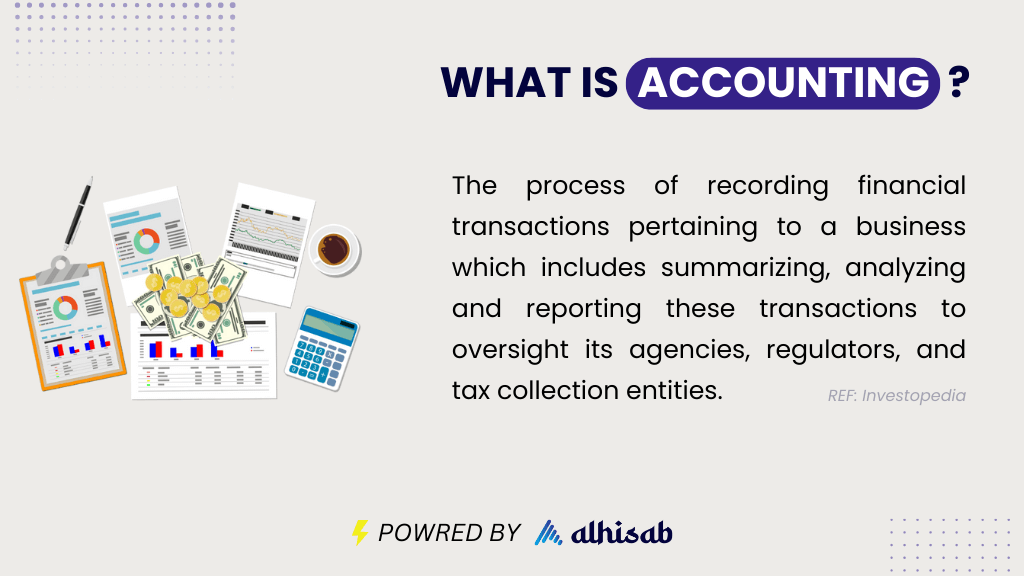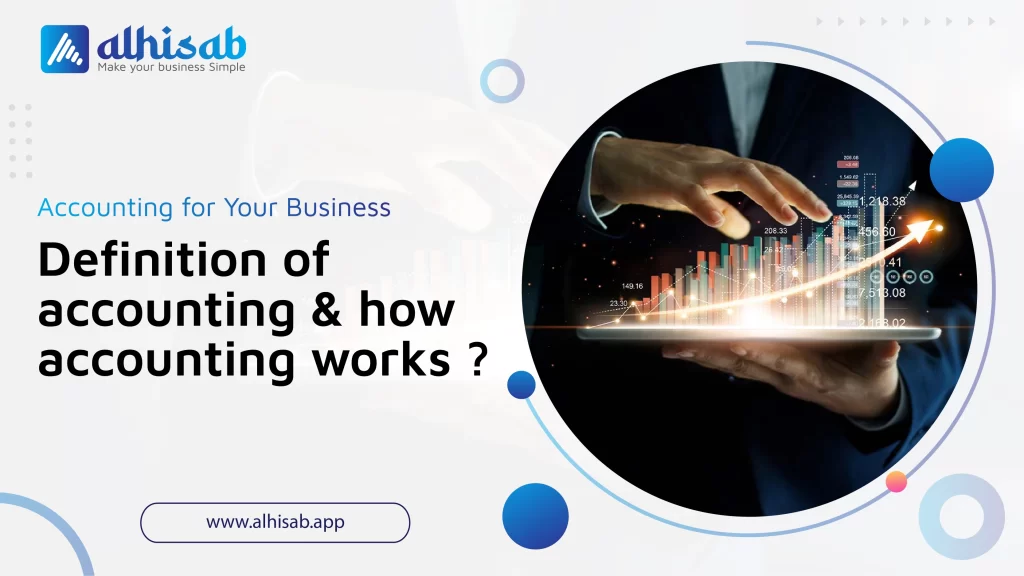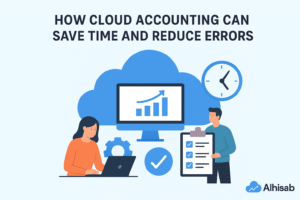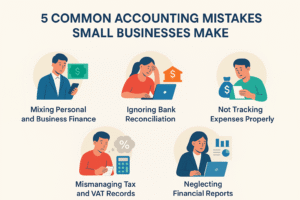Introduction: Definition of Accounting
Accounting is the process of recording, classifying, and summarizing financial transactions to provide useful information in business decisions. The accounting process starts with identifying and recording transactions, then classifying and summarizing them in financial statements. The purpose of accounting is to provide useful financial information in business decisions.
Accounting consists of three primary activities: recording, classifying, and summarizing financial transactions.
A recording systematically captures economic events to be used for further analysis and decision-making. Classifying refers to sorting recorded transactions into meaningful categories so they can be reported in an organized manner. Summarizing refers to creating summary reports that show a company’s financial position, performance, and cash flow at a specific time.
Overview of How Accounting Works
Accounting is an important part of any business or organization. At its core, accounting involves the recording of financial transactions. This is done through a General Ledger, which records all financial activity. General Ledger contains debits and credits, which reflect the financial activity of a business. Debits increase the amount of money the business owes, while credits reduce the amount that the business owes.
The next step in the accounting process is summarizing. This involves consolidating all of the financial transactions into a set of financial statements. These statements include the Income Statement, which shows the amount of revenue and expenses for a given period; the Balance Sheet, which shows the company’s assets, liabilities, and equity; and the Cash Flow Statement, which shows how cash flows in and out of business.
The third step in the accounting process is analyzing. This involves looking at the financial statements to gain insight into the business’s financial health. This can include calculating ratios such as the Debt-to-Equity Ratio, comparing financial data over time, and examining trends.
The last step in the accounting process is reporting. This involves presenting the financial statements to shareholders, creditors, and tax authorities. It also involves providing management with information that can be used to make decisions.
Accounting is an essential part of running a successful business. It helps businesses measure their performance, assess their financial position, and make informed decisions. It also helps them meet their legal and tax obligations. By understanding how accounting works, businesses can ensure that they make the best use of their financial resources.
Basics of Accounting: What does accounting Do & Types of Accounting

Accounting is the language of business, and any business needs to understand the basics of accounting and how it can help them make informed decisions. It allows businesses to track expenses, create financial statements, and make informed financial decisions.
What Does Accounting Do?
Accounting is used to track and record financial transactions, including purchases, sales, income, and expenses. By recording these transactions, businesses are able to keep a record of their financial activities and use this information to create financial statements. Financial statements are used to assess a business’s financial health and make informed decisions about the future.
Types of Accounting
There are several types of accounting, each with its purpose and set of rules. The most common types of accounting are:
Financial Accounting: Financial accounting focuses on the day-to-day activities of a business. It records and reports on financial transactions and statements.
Managerial Accounting: Managerial accounting focuses on the internal operations of a business. It is used to inform managers so they can make informed decisions.
Cost Accounting: Cost accounting focuses on the cost of production and goods sold. It is used to help businesses understand their costs so they can make decisions about pricing and profitability.
Tax Accounting: Tax accounting is used to prepare taxes and comply with regulations. It is used to calculate taxes owed and ensure compliance with tax laws.
Audit Accounting: Audit accounting is used to evaluate the accuracy of financial statements. Auditors review financial statements and ensure they are accurate and comply with laws and regulations.
Unlocking the Benefits of Accounting: How to Monitor Profit and Loss, Analyze Business Performance, and Manage Cash Flow
As a business owner, it’s important to understand accounting basics to properly monitor your profit and loss, analyze business performance, and manage cash flow. Without understanding accounting fundamentals, you could be operating without the necessary knowledge to make sound financial decisions and grow your business.
Profit and loss, or P&L, statements are the foundation of any successful business. These statements provide a snapshot of the performance of your business over a specific period. It is important to understand your P&L statements to make informed decisions about your business. A P&L statement includes income, expenses, taxes, and other costs associated with running the business. By understanding your P&L statement, you can assess whether or not your business is profitable and make adjustments accordingly.
Analyzing your business performance is essential to assessing the overall health of your business. This analysis should include key metrics such as customer acquisition costs, customer retention rates, customer lifetime value, and more. By tracking these metrics over time, you can identify trends and ensure that you’re making the best decisions for your business.
Finally, managing cash flow is essential for the health of your business. Cash flow is the difference between the money coming in and the money going out. It is important to track your cash flow to ensure that your business can cover its expenses and remain financially stable.
By understanding accounting basics, you can unlock the benefits of properly monitoring and analyzing your business performance and managing your cash flow. With a better understanding of your business finances, you can make more informed decisions and ensure the long-term success of your business.
5 Benefits of Using Accounting Software and How to Choose the Right One
Accounting software is essential for businesses in this day and age. It helps to streamline the accounting process, reduce errors and keep track of financial data. But with so many options on the market, it can be daunting to choose the right one. This blog will discuss the five benefits of using accounting software and how to choose the right one for your business.
1. Automates Data Entry: The most obvious benefit of accounting software is the ability to automate data entry. This helps to speed up the accounting process, reduce errors, and ensure accuracy. Instead of manually entering data, the software automatically pulls information from other sources, such as bank accounts, invoicing systems, and payroll software.
2. Enhances Reporting: Accounting software makes it easier to generate financial reports. It can help to quickly create statements, balance sheets, and other documents that provide an overview of the business’s financial health. This makes it easier for business owners and accountants to analyze the data and make informed decisions.
3. Improves Accuracy: Since accounting software automates data entry, it eliminates the risk of human error. This helps to increase accuracy and reduce the chances of errors that could lead to financial losses.
4. Increases Security: Accounting software also helps to improve security. Most software comes with features such as encryption, user authentication, and data backups to protect your financial data from malicious attacks.
5. Streamlines Workflows: Accounting software helps to streamline workflows by automating tasks, such as payroll and invoicing. This helps to free up employees’ time, so they can focus on more important tasks that require their attention.
Now that you know the benefits of using accounting software, how do you choose the right one for your business? Consider the following:
• Look for a software solution that’s easy to use and designed for your business model.
• Make sure the software comes with features tailored to your business needs.
• Consider the cost and make sure it fits your budget.
• Check the customer service and support offered by the software provider.
• Make sure the software integrates with other applications and systems.
By following these tips, you’ll be able to choose the right accounting software for your business. With the right software in place, you’ll be able to reap all the benefits and streamline your accounting processes.
Unlocking the Power of Accounting: A Summary of Benefits for Your Business
The power of accounting is undeniable. It can help businesses make better decisions, manage their finances more efficiently, and understand their financial performance. Accounting can also help businesses identify areas for improvement and provide valuable insights into the financial health of their operations. With the right accounting system, businesses can enjoy the many benefits of financial insight and accuracy, which can help them make more informed decisions and remain competitive in the marketplace.




